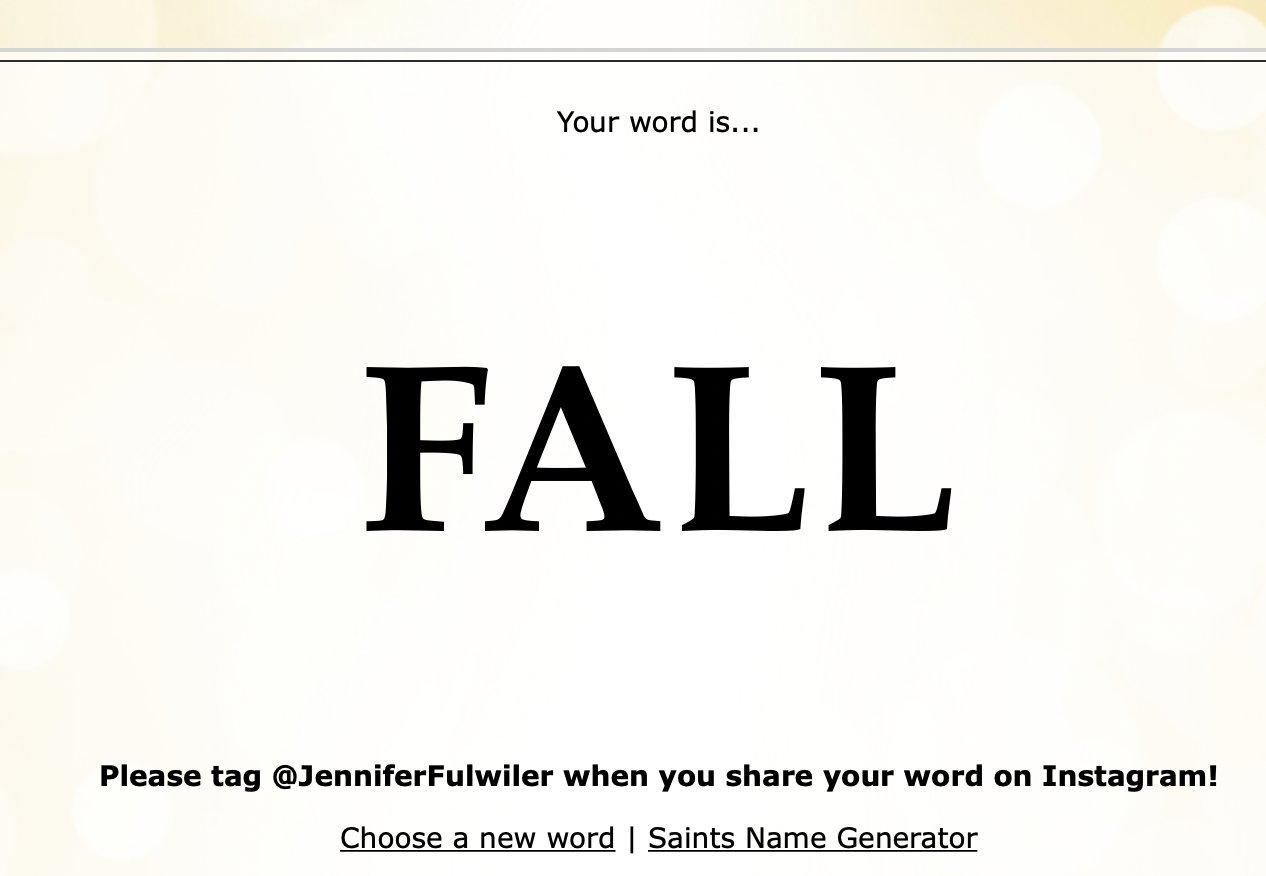When I Fall
I’ve never been one for adopting a “word of the year"—not because I’m opposed to the idea, but because I usually forget my assigned word. But when Jen Fulwiler’s Word Generator spit this out for me…
…I knew there was something to it.
Fall has ominous overtones. No one likes to fall down, and the word is visually too close to fail for comfort. But the two words have different etymologies: the first is Germanic, the second Latinate, and their Proto-Indo-European roots are different. To fall is not to fail—not when the landing is exactly where we need to be.
The past several days have been rough. Parenting struggles, author struggles, and mental health struggles have converged into a perfect storm, and I would be lying if I said I was handling it well. No, I owe a visit to my old friend, Mr. Confessional. He’s always happy to see me, even if I’m not always happy to see him.
“I do not understand my own actions,” St. Paul says in his letter to the Romans. “For I do not do what I want, but I do the very thing I hate” (7:15). Not only am I powerless over other people and external circumstances, but I am powerless over my own carnality.
I cannot fix others. I can’t even fix myself.
But as St. Paul teaches and as we hear echoed in many places, powerlessness has a paradoxical relationship to hope. Powerlessness is the pivot point between willfulness and willingness. Almighty God can and does work miracles in my life, but He waits for my permission. God is a gentleman; He does not force Himself upon those who do not want Him. He will let me flounder until I realize I need Him. And when I do—when I fall—He works His miracles.


